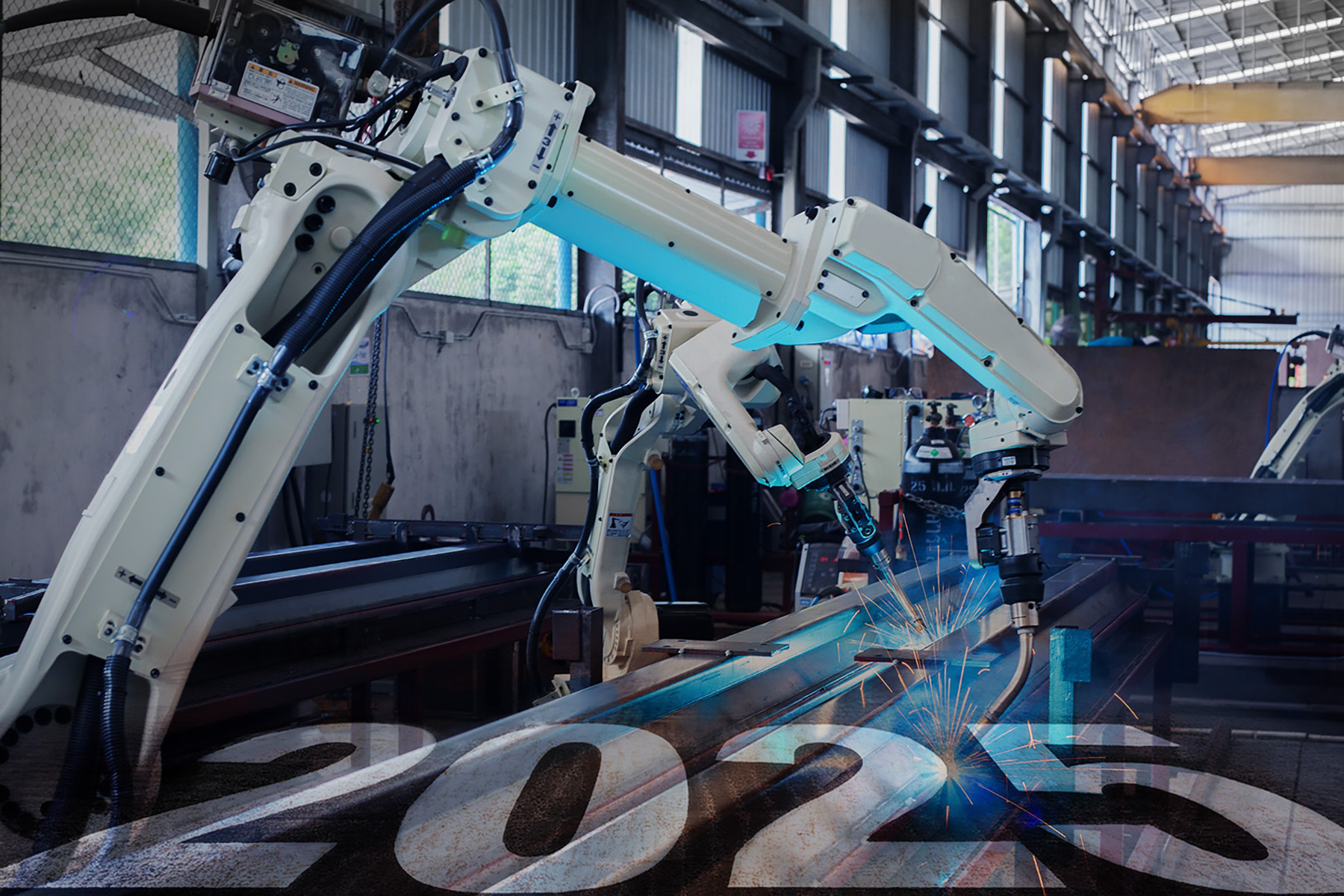
As we head into 2025, it’s important to not just review the past year’s successes and missed opportunities but to anticipate what lies ahead in the future. The industrial contracting sector continues to evolve, and new trends will undoubtedly affect how companies approach construction, maintenance, and facility upgrades.
Let’s examine five major trends that industrial contractors need to watch in 2025.
1. Automation and Robotics
Automation and robotics will slowly be adopted by more and more companies, especially in manufacturing. Automated guided vehicles (AGVs) and autonomous mobile robots (AMRs) are transforming material handling in production lines without the need for human drivers, while advanced automation equipment can even handle tasks like welding and inspections.
This shift is presumed to allow human workers to focus on more complex tasks, increase safety, and accelerate timelines. In 2025, we can expect further integration of AI-driven tools and robotic construction equipment with goals to streamline processes, cut costs, and improve consistency.
2. Addressing Labor Shortages with Upskilling
The labor shortage continues to haunt the industrial contracting industry, with companies struggling to find skilled workers. To adapt, companies will pivot their focus from solely relying on finding new talent to developing their current workforce, including upskilling employees and partnering with technical schools.
Many industrial contractors are offering specialized training programs to close skill gaps, especially in tech-driven roles. In 2025, we predict there will be more apprenticeships and skill-building initiatives as contractors try to attract and develop the talent needed to keep up with industry demands.
3. Declining Inflation Encourages New Investment
With inflation declining and the Federal Reserve having implemented what is believed to be the first of several interest rate cuts in September 2024, the cost of financing large projects will decrease, sparking investment in new facilities, upgrades and expansions.
As borrowing becomes more affordable, companies will increasingly turn to industrial contractors to help fulfill projects that may have been delayed in recent years due to high costs.
4. Data-Driven Decision Making
In 2025, advanced data analytics applications will make way for more accurate cost estimates, real-time adjustments and proactive risk assessments. These changes are likely to reduce costly delays and budget overruns.
Data-driven decision-making is becoming more and more common in industrial contracting as it helps make better choices in budgeting, resource allocation and scheduling. Predictive analytics will further enable contractors to plan with even more accuracy, allowing them to adapt to unexpected conditions.
5. Modular and Offsite Construction
Offsite construction methods are becoming more popular as industrial contractors and the businesses they serve seek faster, less disruptive solutions. By assembling off-site and transporting to job sites, contractors can significantly reduce timelines and limit disruptions to facility operations.
Modular methods – in which individual modules or components of a building or equipment are constructed offsite then transported to the final location for assembly – are also gaining traction. This method is used to create sections like walls, floors, or even fully functional rooms or mechanical units that can be quickly installed onsite.
Modular approaches give contractors more quality control and resource efficiency, which is especially beneficial for space-limited sites. In 2025, we expect to see increased adoption of these methods to meet tight deadlines and deliver projects quickly without compromising quality.
In 2025, industrial contractors who embrace these industry shifts will be better positioned to deliver efficient, cost-effective, and adaptive solutions that meet the evolving needs of businesses.
Looking for an industrial contractor? Lee Contracting has the resources and expertise to help you with any industrial project. Contact us today for a quote.


